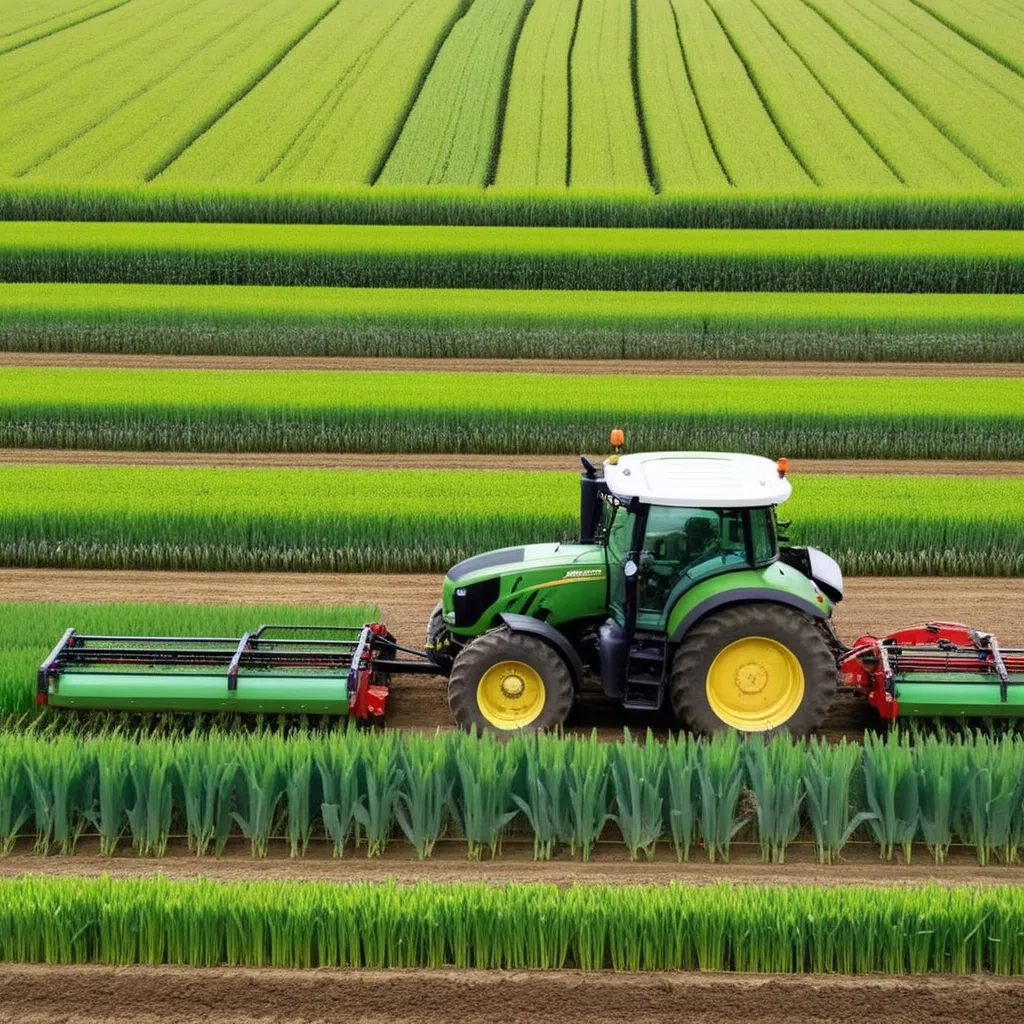The Role of Technology in Modernizing Agriculture
Picture this: a vast expanse of green fields stretches as far as the eye can see, and at the heart of it all, a farmer tends to the crops with the assistance of a smartphone. Welcome to modern agriculture, where technology has become an indispensable partner in the age-old practice of farming. In this article, we'll explore the profound role that technology plays in modernizing agriculture, sharing insights and personal experiences that highlight the transformative power of innovation.

My Grandfather's Farm
My journey into the world of agriculture and technology began with my grandfather's farm. I remember the long, hot days spent helping him tend to the fields, a tradition passed down through generations. Back then, farming was a labor-intensive endeavor, relying on manual labor and the unpredictable whims of nature.
My grandfather often marveled at the possibilities technology could bring to farming, even as he plowed the fields with a pair of oxen.
Precision Agriculture: A Game-Changer
1. Drones for Aerial Surveillance
Drones equipped with cameras and sensors have revolutionized crop management. They provide real-time aerial surveillance, helping farmers detect issues like pests, disease outbreaks, and irrigation problems.
2. Satellite Imaging
Satellite technology enables farmers to monitor the health of their crops on a large scale. They can pinpoint areas that need attention, leading to more efficient resource allocation.
3. Smart Irrigation Systems
Water is a precious resource, and smart irrigation systems allow farmers to optimize water usage. Sensors in the fields collect data on soil moisture, weather conditions, and crop needs, ensuring that water is delivered precisely when and where it's needed.
Data-Driven Decision-Making
One of the most significant benefits of technology in agriculture is the wealth of data it generates. Farmers can collect and analyze data to make informed decisions about planting, harvesting, and resource allocation. This data-driven approach enhances productivity and reduces waste.
The Role of Automation
1. Robotic Farmhands
Robots are increasingly used for tasks like weeding, harvesting, and even milking. They work tirelessly, 24/7, without the need for rest, ensuring that crops and livestock are tended to efficiently.
2. Autonomous Tractors
Autonomous tractors equipped with GPS technology can follow pre-programmed routes, plowing fields with incredible precision. This not only saves time but also minimizes fuel consumption.
Connectivity in Rural Areas
In remote rural areas, access to the internet was once a challenge. However, technology has extended its reach, bringing connectivity to even the most isolated farms. This allows farmers to access market prices, weather forecasts, and agricultural knowledge, empowering them with vital information.
Challenges and Sustainability
While technology has made remarkable strides in modernizing agriculture, it comes with its set of challenges:
1. Cost of Adoption
The initial investment in technology can be significant, posing a barrier to entry for smaller, resource-strapped farmers.
2. Data Security
With the collection of vast amounts of sensitive data, cybersecurity becomes a concern. Protecting this data from breaches and misuse is paramount.
3. Environmental Impact
Balancing the benefits of technology with environmental sustainability is crucial. Excessive use of chemicals and intensive farming can harm the environment.
A Bright Future
The marriage of technology and agriculture has ushered in a new era of farming. It's a future where precision, efficiency, and sustainability are at the forefront. While my grandfather's farming methods were rooted in tradition, today's farmers are embracing technology to secure a brighter future for agriculture.
As I look back at the fields where my grandfather once toiled, I can't help but feel a sense of hope. Technology has transformed farming, and I believe it holds the key to a more prosperous and sustainable agricultural future.<

No comments:
Post a Comment